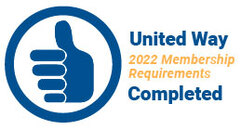|
One of the new strategies in supporting people in substance use is the peer recovery coach (PRC). A peer recovery coach is someone who has experienced substance misuse or mental health issues and is currently in active recovery. In addition to their lived experience, the PRC has completed forty hours of specialized training and passed a certification test. A PRC is not a therapist, diagnostician or counselor, but part of a team of professionals who support people in their recovery. They walk alongside the substance user on the road to recovery. Research shows that PRCs have a strong impact on those they help. There is mounting evidence that people receiving peer recovery coaching reduce their substance use and have improved recovery outcomes. In addition to an increased access to support services people working with PRCs tend to stay in treatment longer, have improved relationships with treatment providers, have fewer arrests, relapses, and emergency room visits, and are less likely to be homeless. (SAMSHA.gov) The power of a PRC is that while the substance user’s brain is telling him that he will never overcome addiction, there is a live person sitting in front of him, saying, “I’ve been there. I am in recovery and you can be, too.” Many people in substance abuse have not ever seen what successful recovery looks like. Gina Fears from the Recovery Resource Center in Indianapolis shared, “sometimes the idea of how to change is really scary. When addiction is driving you, it will whisper things like ‘You can’t do that.’ To be in a setting where people have really done it and they are down-to-earth people talking and sharing their journey, it makes it easier.” . The PRC gives the user hope and encouragement that recovery is possible and attainable. Hope of a better future is critical for moving forward in recovery. One of the biggest obstacles to overcoming addiction is isolation. The PRC helps the individual connect to and trust first with his PRC, then the recovery community and finally his larger community. Many aspects of life in recovery are foreign to the individual coming out of addiction. The PRC helps the person navigate those adjustments and have success in a sober society. There are many paths to recovery: faith based or secular, inpatient, outpatient or residential, abstinence or medically assisted treatment. The PRC’s role is to share their personal story of recovery, help the person examine various paths to recovery, and develop a personal recovery plan. A common PRC question is “How can I help you in your recovery today?” The PRC helps the individual set up goals, and then establish small, manageable steps to get there. The PRC is knowledgeable about resources for food, housing, transportation, support groups, counseling, treatment, and other services in the community, and acts as a resource broker connecting the person to the services and resources he needs. The PRC helps set up appointments, arrange transportation, and support the individual during his appointments. The PRC fills gaps in transitions to recovery services so those in recovery are less likely to fall between the cracks and lose their way. There is good news! Beginning in September, White County will have access to peer recovery coaches through the North Central Quick Response Team. More on that next week.
0 Comments
Your comment will be posted after it is approved.
Leave a Reply. |
AuthorLynn Saylor is the AmeriCorps member working with the United Against Opioid Abuse Initiative alongside the White County United Way. She is a major facilitator of the United Council on Opioids serving White County and a regular contributor to local media. Archives
October 2020
Categories
All
|

 RSS Feed
RSS Feed
